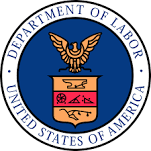
(WASHINGTON, DC)– The U.S. Department of Labor today announced approximately $40 million in H-1B Rural Healthcare Grant Program funds awarded to partnerships of public and private entities to address rural healthcare workforce shortages in communities across the country.
The coronavirus pandemic has increased the need for healthcare workers, particularly in rural areas where that need was already acute. Through the expansion of employment and training models for the healthcare industry, the Department’s Employment and Training Administration aims to help individuals gain the skills necessary to provide needed services, fill vacancies and allow employers to find skilled workers more readily.
The aim of this funding is to increase the number of individuals training in healthcare occupations that directly impact patient care and alleviate healthcare workforce shortages by creating sustainable employment and training programs in healthcare occupations (including behavioral and mental healthcare) serving rural populations. Grantees will incorporate new and emergent technologies, such as interactive simulations, personalized and virtual instruction, educational gaming and digital tutors, into the educational component of their training design.
“The ultimate purpose of these investments is a healthier American public,” said Assistant Secretary of Labor for Employment and Training John Pallasch. “But to meet that goal, underserved rural areas of the country need more and better trained healthcare workers, and these community partnerships will help us meet that goal while creating local buy-in and boosting economic opportunity.”
The public-private partnerships will use both federal and state funding streams, as well as investments from the private sector, working together to build a skilled healthcare workforce in their areas. The Department encourages grantees to generate at least 15 percent of the total amount of requested funds as leveraged funds to support the grant project.
Grant recipients include employers in the healthcare sector; nonprofit healthcare organizations affiliated with hospitals and other medical facilities; healthcare industry and/or occupation associations; organizations designated as “Primary Care Associations” by the Health Resources & Services Administration; Workforce Innovation and Opportunity State or Local Workforce Development Boards and federally recognized Indian/Native American Tribal Governments; and Native American Program entities eligible for funding under Section 166 of WIOA (29 U.S.C. 3221).
Section 414(c) of the American Competitiveness and Workforce Improvement Act of 1998, as amended (codified at 29 U.S.C. 3224a) funds the H-1B Rural Healthcare Grant Program with awards ranging from $1.2 million to $2.5 million.
The recipients of these H-1B Rural Healthcare Grants are as follows:
| Recipient | City | State | Amount |
| Alaska Primary Care Association | Anchorage | AK | $1,231,238 |
| California Rural Indian Health Board Inc. | Roseville | CA | $2,500,000 |
| Colorado Center for Nursing Excellence | Denver | CO | $2,500,000 |
| Western Colorado Area Health Education Center | Grand Junction | CO | $2,500,000 |
| CommunityHealth IT | Kennedy Space Center | FL | $2,500,000 |
| Tecumseh Area Partnership Inc. | Lafayette | IN | $2,499,963 |
| Eastern Kentucky Concentrated Employment Program Inc. | Hazard | KY | $2,500,000 |
| Coastal Counties Workforce Inc. | Brunswick | ME | $2,500,000 |
| Michigan Department of Labor and Economic Opportunity | Lansing | MI | $2,500,000 |
| Mary Hitchcock Memorial Hospital | Lebanon | NH | $1,231,238 |
| Governor’s Office of Workforce Innovation | Las Vegas | NV | $2,500,000 |
| Workforce Development Board of Herkimer, Madisonand Oneida counties | Utica | NY | $2,500,000 |
| Ohio Area 7 Consortium of Chief Elected Officials | Springfield | OH | $2,499,227 |
| Pee Dee Regional Council of Governments | Florence | SC | $2,271,023 |
| West River Area Health Education Center | Rapid City | SD | $2,500,000 |
| Workforce Solutions Rural Capital Area | Cedar Park | TX | $2,500,000 |
| Northwest Wisconsin Workforce Investment Board Inc. | Ashland | WI | $2,499,843 |
The mission of the Department of Labor is to foster, promote and develop the welfare of the wage earners, job seekers and retirees of the United States; improve working conditions; advance opportunities for profitable employment; and assure work-related benefits and rights.



